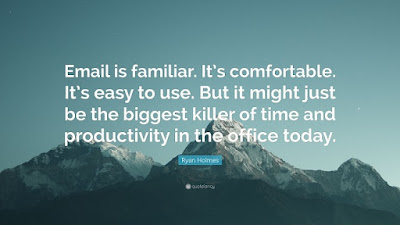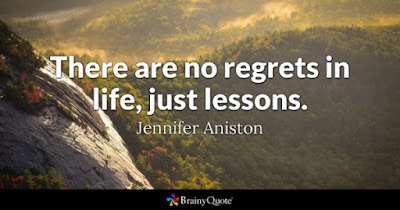Better Electronic Communication And Trying To Not Be That Person
I hate email. Which is kind of unfair, because my real issue is any type of communication when it is inefficient. Today we have so many different methods of communication. On a typical day at work I will get messages in email, Teams, Slack, Basecamp, three different service desk ticket systems, project tickets and issue logs. Every tool has its purpose and value. I work in a world with different clients and vendors who all have different preferences and tool sets. I don't really mind it. What never ceases to amaze me though is the number of times I will get a message in one medium asking if I saw a message in another.
Now, to be fair, I'm probably just as guilty as the next person. I can recall sending a Teams message to a developer asking if they saw the update in Basecamp and if they need me to create a Jira ticket for it. That is insane.
Here are the rules I try to live by to hopefully make sure I'm not adding to the problem any more than is absolutely necessary.
- Other people are busy too. - My thing is important, and I want to get it done, but everyone has their own tasks they need to get done. People aren't just sitting around waiting for me to send them a message so they can react to it, they have their own work to do.
- Related, their priorities might not be the same as mine. - Not only are they busy, but their priorities probably aren't the same as mine. Just because I really need to get a task done, doesn't mean it is the most important thing for them.
- Anything can wait 24 hours - Of course I want an answer right away, but usually things can wait a day. There are critical tasks, like the site is down, but not everything is urgent.
- It is okay to follow up - Things get lost and forgotten after a couple of days. All the new messages flooding in can push something down your inbox. I find that friendly follow ups to bump something up to the top again can be helpful. People really don't want to forget about something, but it happens because we're all human.
- Get good at spinning plates - One of my most used analogies is about how it isn't about juggling, it is about spinning plates. You know the act where they get the first plate spinning, then move on to the second and the third, then when the first plate starts to wobble they go back and give it a couple of turns to keep it going, go add a fourth, go back to 2 and 3, etc. It is a model for how to work. I don't believe in multitasking, you can't work on 2-3 things at the same time. You can work on one task until there is nothing more to do, then put it aside, move on to the next one while you are waiting for reply's.
- Use peoples free/busy indicators on their calendar. If you need to schedule a meeting and you can see the times they are available, send them an invite for when they are free. People are smart and if they have something they need to block their calendar off for they will. I don't need to send them a message saying they look open at a particular time, is that a good time for a meeting.




Comments
Post a Comment